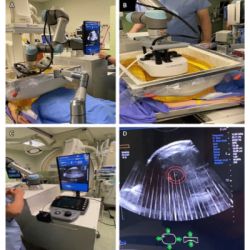As reimbursement methods shift towards value-based care, there is a growing concern regarding their suitability for non-episodic care, especially when it comes to specialised services provided by non-patient-facing professionals, such as radiologists. A new study delved into the frequency of non-episodic care, within the field of diagnostic radiology.
The team conducted a retrospective study spanning multiple years, from 2015 to 2019, focusing on diagnostic imaging. This study used a large commercial payer database, encompassing both commercial insurance and Medicare Advantage plans.
To analyse the records, the research team categorised the data into two distinct blocks.
Using a 12-month evaluation, the team commenced evaluation from the date of the initial imaging procedure, classifying imaging studies as isolated occurrences if there were no further claims for additional imaging in the same body region during the following 12 months.
The second block adopted an even more rigorous definition of an isolated event: an imaging claim that did not entail any subsequent imaging whatsoever within the subsequent 12 months.
The findings demonstrated that one-off events and by body region constituted a range of 33.2% to 45.8% of all imaging studies. This percentage depended on whether one-off events are defined as the only study in the evaluation period or as imaging conducted only on the first day of the evaluation period.
The team also discovered high rates of one-off imaging, with the highest prevalence observed in cardiac imaging (ranging from 80.9% to 87.7%) and a lower occurrence in chest imaging (ranging from 26.8% to 35.2%).
Furthermore, when considering the place of service, the proportion of one-off events was at its lowest in inpatient settings (ranging from 12.9% to 29.1%) and long-term care facilities (ranging from 18.6% to 30%).
Due to the substantial portion of imaging studies classified as isolated events, a significant portion of the workload for radiologists presents a huge obstacle for radiology’s meaningful engagement in value-based reimbursement or alternative payment models.
Source: Current Problems in Diagnostic Radiology
Image Credit: iStock
























